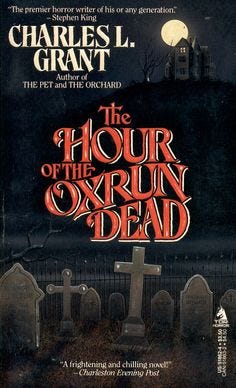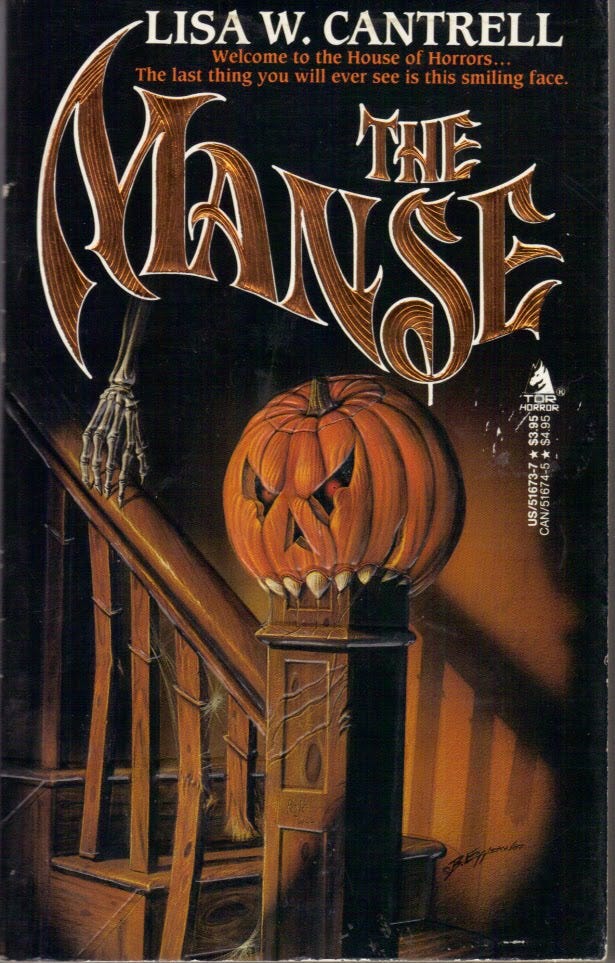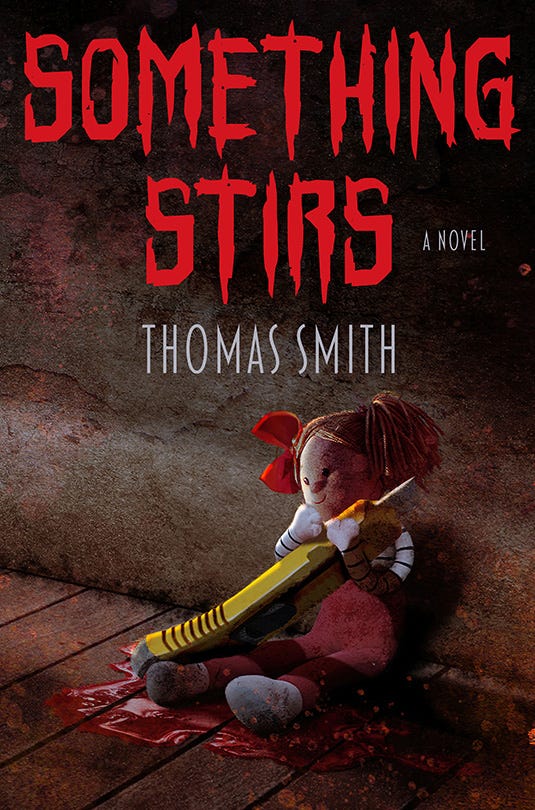It’s a funny thing. More times than not when people find out you’re a writer, there are three questions you will almost always hear.
What do you write?
Where do you get your ideas?
Have I read anything you’ve written?
And if you tell them you write horror, it’s almost a guarantee (depending on who is asking) that you won’t even have to answer questions two and three. At that point, many people will unwittingly take a step back before they finish the conversation. Then comes the big question: Why do you write that?
And you know something? While it can be an annoying question depending on how it’s asked, it’s also somewhat legitimate.
When I first started writing horror (and pretty much everything else), some very nice people saw that I was honestly trying to do things the right way, so they took me under their wings and showed me the ropes. Charlie Grant was my mentor and friend for about 25 years and told me the thing that marketers don’t want you to know: Horror is not a genre. Prior to the advent of Stephen King, tales of terror, horror, etc., were simply fiction. It was only when King and a few others began to run up massive numbers did advertising types realize they could corral similar tales and give them their own “genre” and a new marketing tool was born.
The truth is, horror is an emotion. Just like love, surprise, confusion, and any number of other things we experience throughout our lives. And horror can spring up at any time, in any place. And as a pioneer of “quiet horror” Charlie understood that and was a master of using setting and shadows to create a sense of dread. For example:
“The moon was a ghost in the house of night. It rose from the ashes of a sunset in crimson—silent, stained, setting free the shadows that drifted slowly round its passing. Its breath was the dark wind, drawn from catacombs of chilled and chilling dust; its voice the parchment husking of solitary leaves on solitary boughs that clawed at the night air for purchase of a soul. Few saw it without turning aside to a friend, few heard it without wishing they hadn’t known the tune.” - From Tales From the Nightside.
Lisa Cantrell (there’s a blast from the past) taught me that an idea doesn’t have to be fresh, new, and cutting edge. But it DOES have to be executed well. That’s why vampire stories, haunted house/building stories, things from space stories keep coming back. In the hands of someone willing to take the time to tell a good story and make us care about the characters, we’re more than willing to sit through another vampire tale or ghost story because we enjoy it when it’s done well.
Craig Shaw Gardner taught me that it takes time to become a successful writer. Building a readership takes time. Honing your chops takes time. Making a name within the writing community takes time, and those who try to circumvent the process find themselves left behind, or at best, they are a flash in the pan with no staying power.
Thomas F. Monteleone taught me about the classier side of the writing profession. Don’t misunderstand me. He does not suffer fools lightly, and is one of the more outspoken members of the writing community when the need arises. But he is also more than willing to offer advice and guidance for those who are in the beginning stages, are serious about their writing, and are wanting to do things the right way. He once referred to me as a true southern gentleman, but if you ever meet Tom Monteleone, you’ll understand that such people also exist north of the Mason-Dixon Line.
OK, But Why Do You Write That Stuff?
Here’ the thing. Years ago I was a Methodist Minister, and the folks in my church thought it was pretty great that they had a minister who wrote horror. Way back when Horrors! 365 Scary Stories came out, I had two stories in the collection. Just before the book came out, a newspaper reporter interviewed me and one of his questions was, “As a minister, do you think you have a special insight to horror that other people don’t have?”
I told him I didn’t think so. A soldier on the battlefield, the victim of a violent crime, a parent who sees their toddler drown in a swimming pool, all know more about horror than we ever will. But I do know something about the difference between evil and badness. And I think it’s important that the distinction is both made and understood.
You see, horror gives us more than just an opportunity to write about scary things (although that IS a lot of fun). It gives us an opportunity to explore some important topics. In its simplest form, the horror story is a vehicle for conveying ideas. It is the canvas on which the story is told. Nothing more, nothing less. Just as writers use science fiction, romance, adventure, history, and humor to tell their stories, the horror writer does the same thing. As Scott Derrickson told Peter Chattaway in a Christianity Today article (August 30, 2005), “It's about admitting that there is evil in the world, and recognizing that there is evil within us, and that we're not in control, and that the things that we are afraid of must be confronted in order for us to relinquish that fear.”
That’s it at the core. Horror is about facing our fears. And it’s about what can happen when we don’t.
In a good horror story, how a character responds to their situation can strengthen them and give them the internal fortitude and spiritual stamina they will need to prevail. Or at least to survive. In the process characters often have the opportunity to shed at least some of the physical and/or emotional baggage that has held them back and draw on their fledgling reserves to face the evil in a way they never would have been able to in the past.
In the process, a good horror story shows us at our best and at our worst.
So in answer to the question, “Why do you write that stuff?”
I don’t know how not to.
Other Stuff
My novel, Something Stirs, will be released by Cemetery Dance Publications on October 13th. And yep…I sty the title from a Charles Grant novel. Sort of my tribute to Charlie (and what a coincidence, the house is on Grant’s Ridge just for a little added overkill).
If you know Ronald Kelly’s work, you’ll want to pick up a copy of his book, Southern Fried and Horrified. And if you don’t know his work, this is a great way to learn about the man and his writing.









